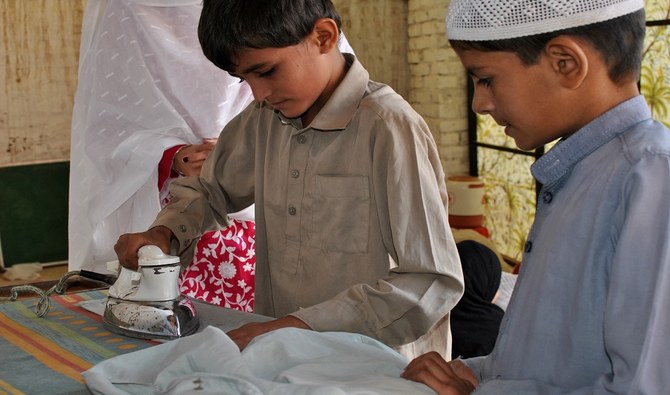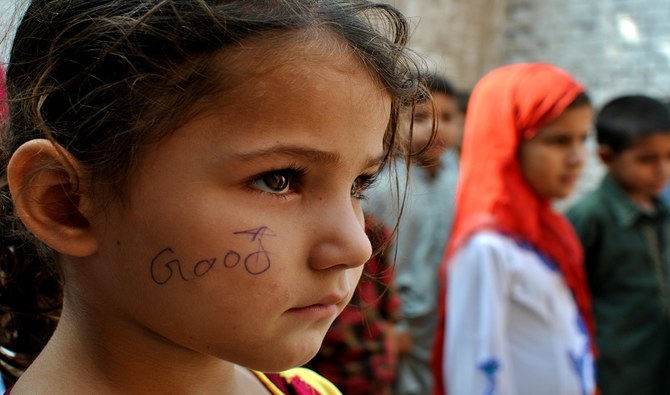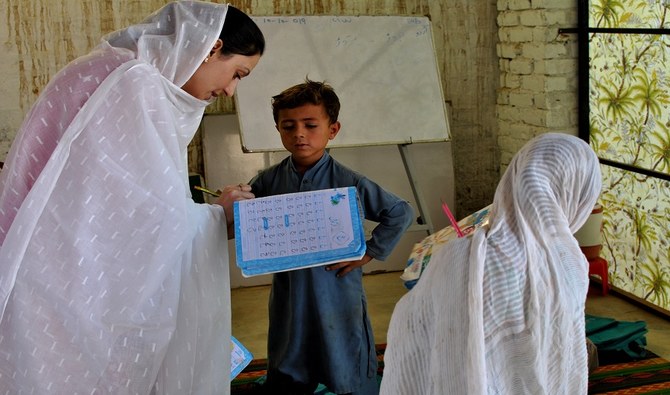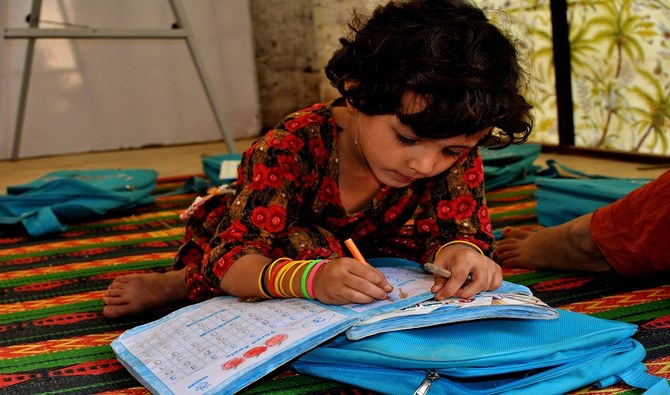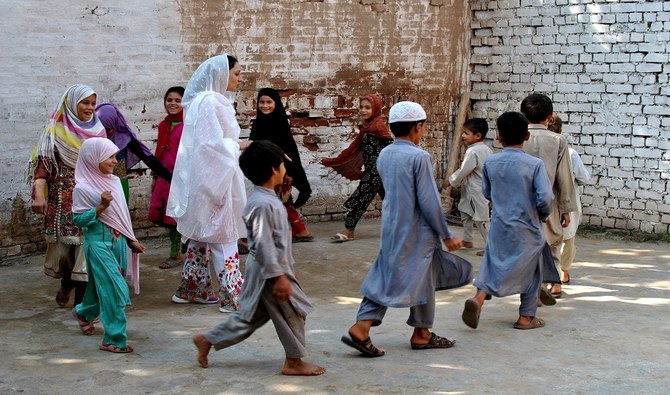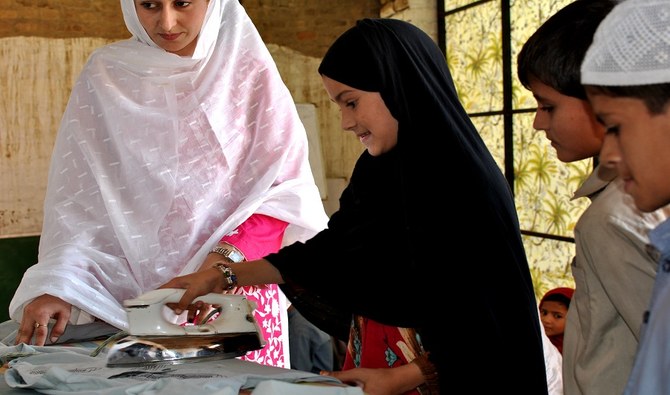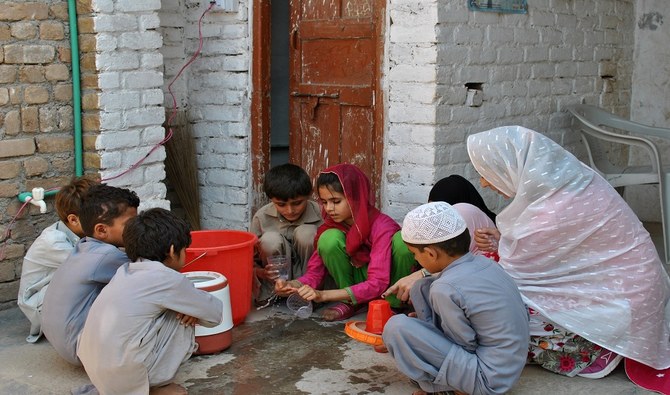PESHAWAR: In Pakistan’s northwestern city of Peshawar, where patriarchal traditions are hard to break, one school is on a mission to teach children gender equality in the household.
Apart from teaching regular subjects like math, science, Urdu and English, the Parha Likha Primary school sets itself apart by offering modules on household chores as part of its curriculum.

Learning charts hanging on the walls of a classroom at the Parha Likha Primary School in Peshawar. October 10, 2019. (AN Photo by Saba Rehman)
Children as young as four years old up to 12 years of age are taught how to mop the floors, wash dishes, iron clothes, and learn regular domestic work in the free school established by 27-year-old Shahnaz Khan.
The purpose, Khan said, is to turn them into well-rounded individuals and prepare them for life.

Children arrange their shoes in order during class at the Parha Likha Primary School in Peshawar. October 10, 2019. (AN Photo by Saba Rehman)
“In our society, only girls are supposed to do all the work at home and boys do not do any household chores because they are never trained in domestic work. So, when these boys go abroad or to a boarding life, they don’t know anything. That’s why I took this initiative,” Khan told Arab News.

Shahnaz Khan, founder of Parha Likha Primary School in Peshawar, teaches students in class. October 10, 2019. (AN Photo by Saba Rehman)
Her journey began from a personal level, because she had to fight her way through the patriarchy, one new decision at a time, Khan said.
“I belong to a family where educating girls was considered a bad thing. I am the first girl in my entire family who did her masters from a university. There were many hurdles in the way of my own education. I did my bachelors privately at home,” she said.

Children show their books in class at the Parha Likha Primary School in Peshawar. October 10, 2019. (AN Photo by Saba Rehman)
A majority of the children who attend Khan’s school, which now enrols 40 students, belong to families where both parents are daily wage laborers, or where the children themselves were once employed.
Talha, a student of grade two and a former child laborer, is one such example.

Parha Likha Primary School teaches children for free in Peshawar. It includes children of daily wage earners and laborers who can’t afford to send their children to private or public schools. October 10, 2019 (AN Photo by Saba Rehman)
“Before coming here, I was studying in a private school after which I would work in a house where I did domestic work. My parents could not afford my school expenses so I dropped out,” he told Arab News.
Now, Talha studies in Khan’s school free of cost, and is getting practical life skills in the process.
Robina, another former child laborer, said she was given a second chance at creating a better future for herself.
“My mother works in a factory and she can’t afford my school expenses. Here, I can continue my studies,” she said.


